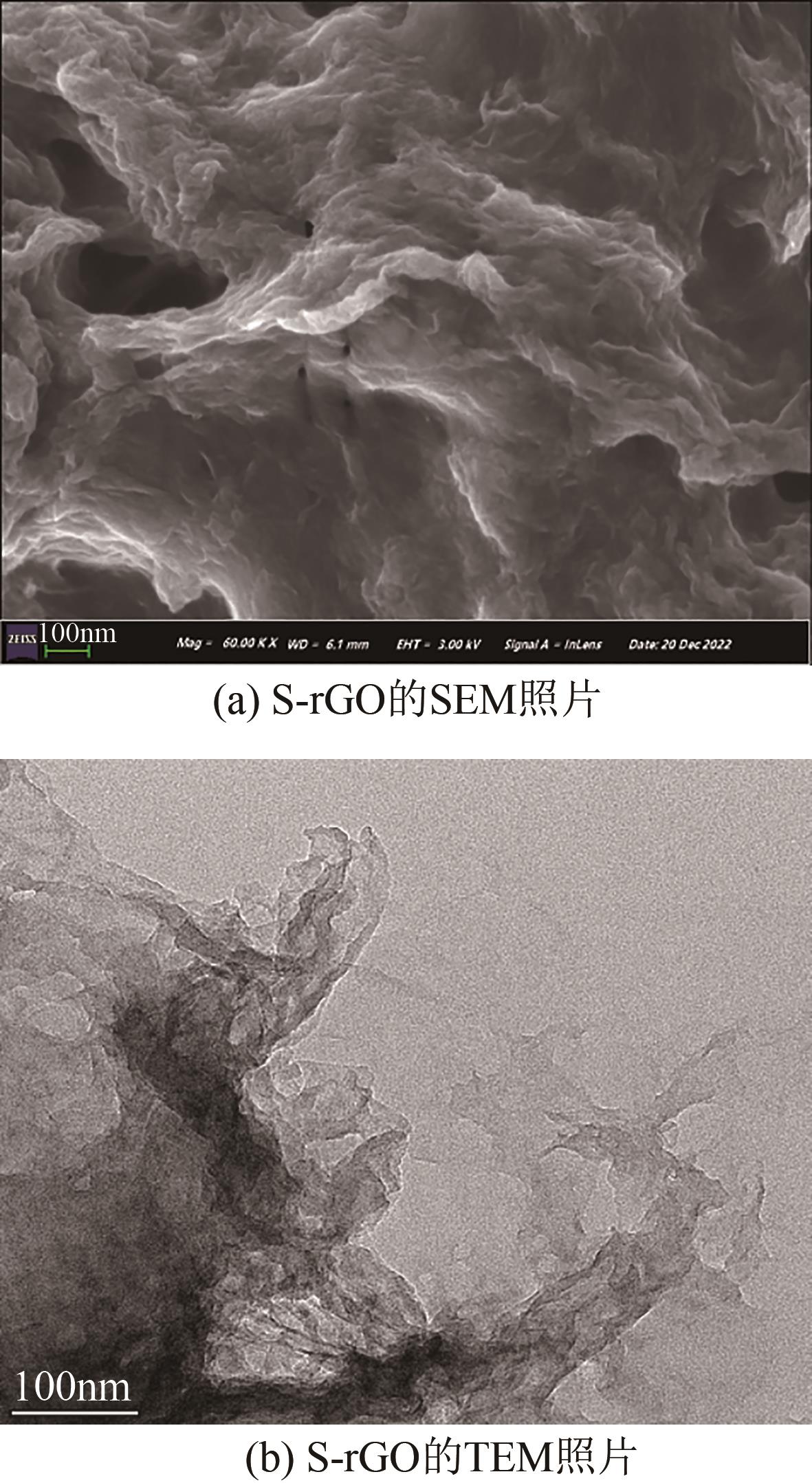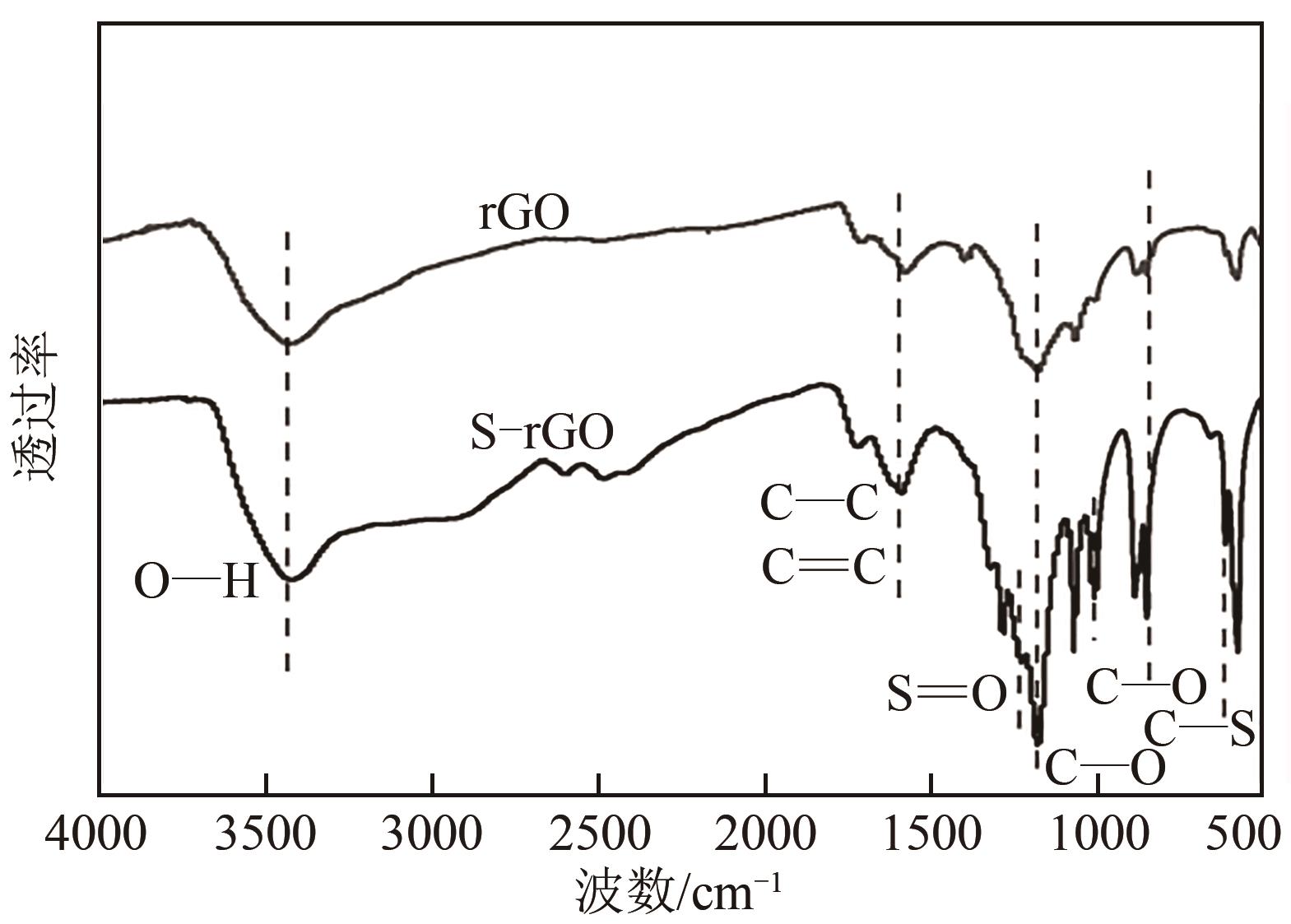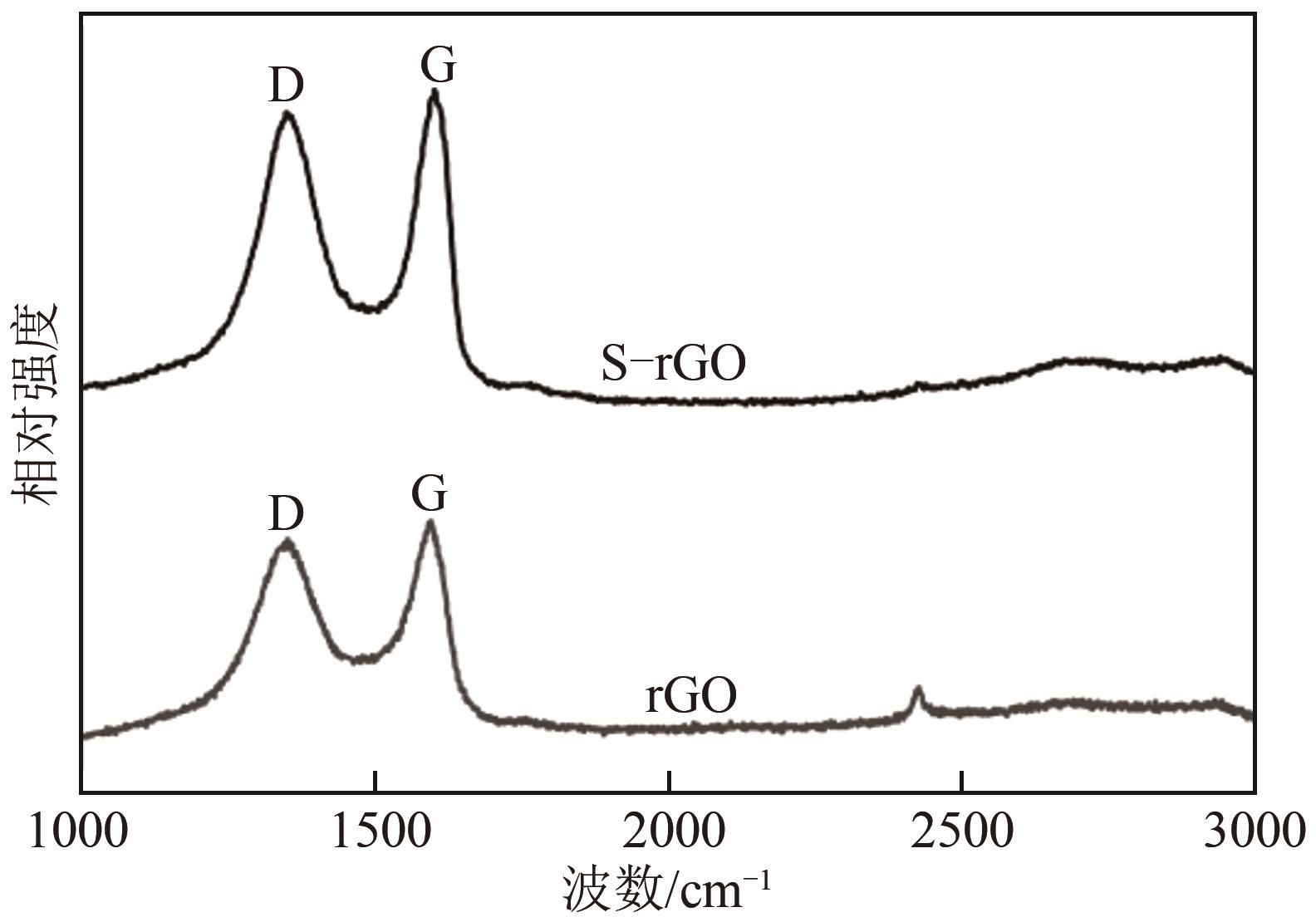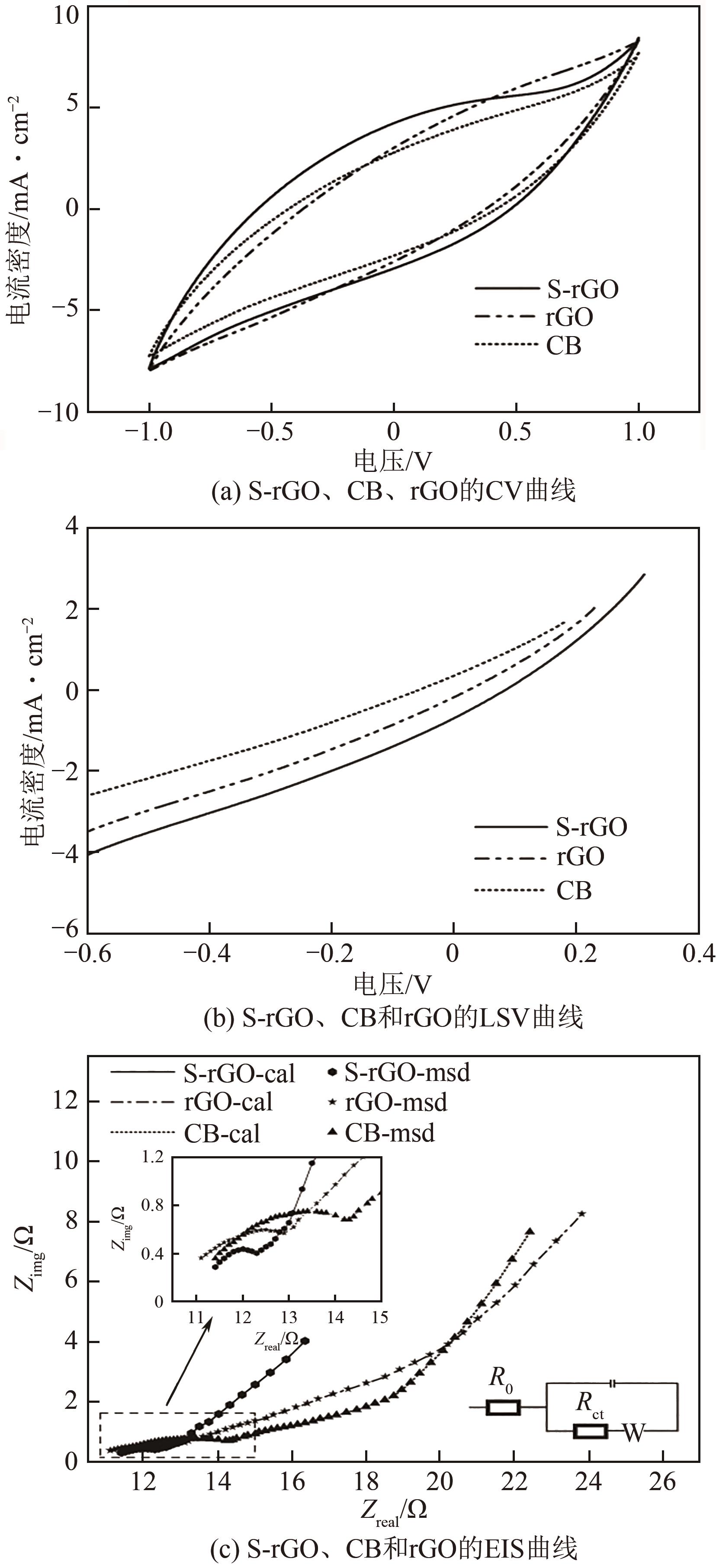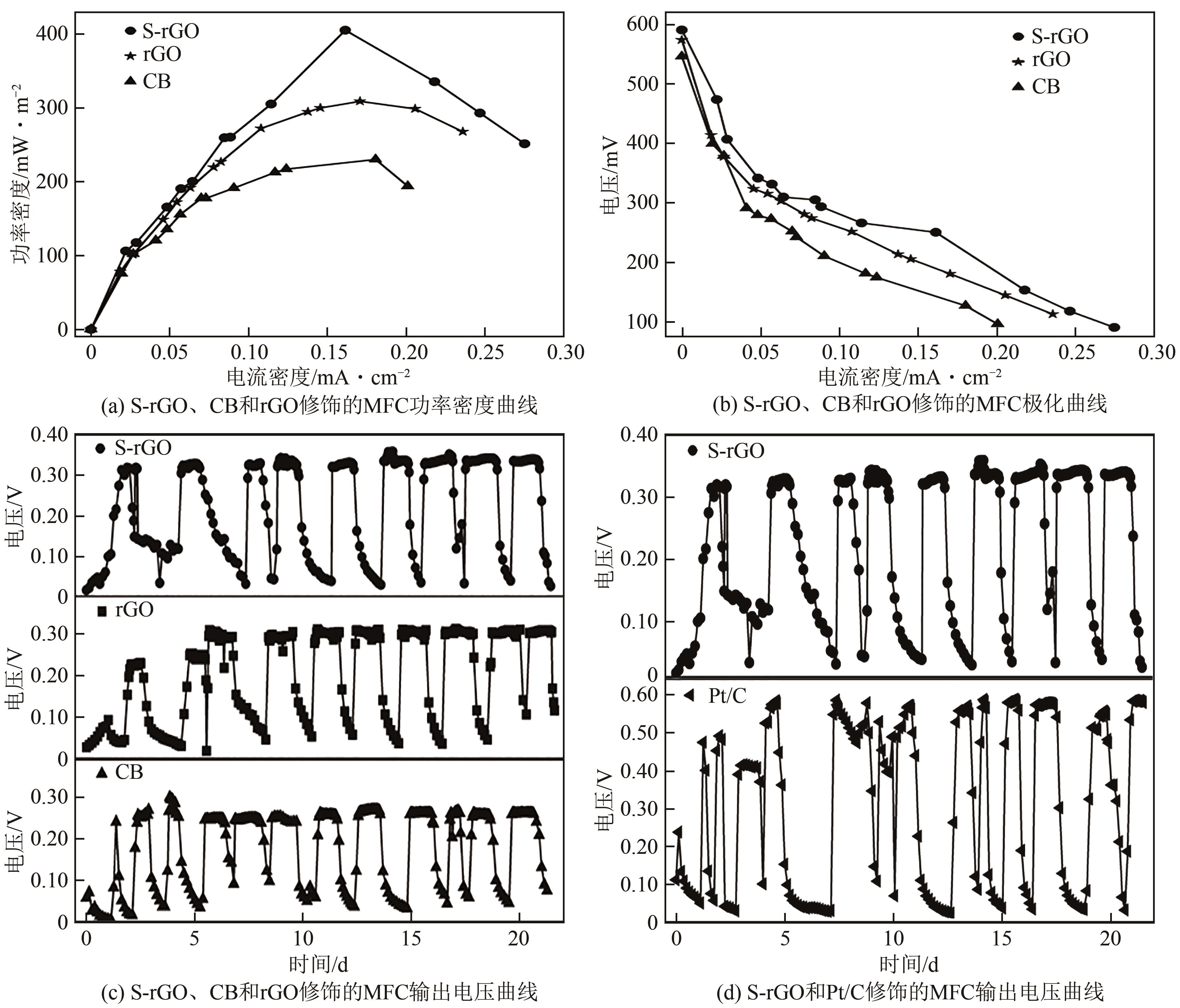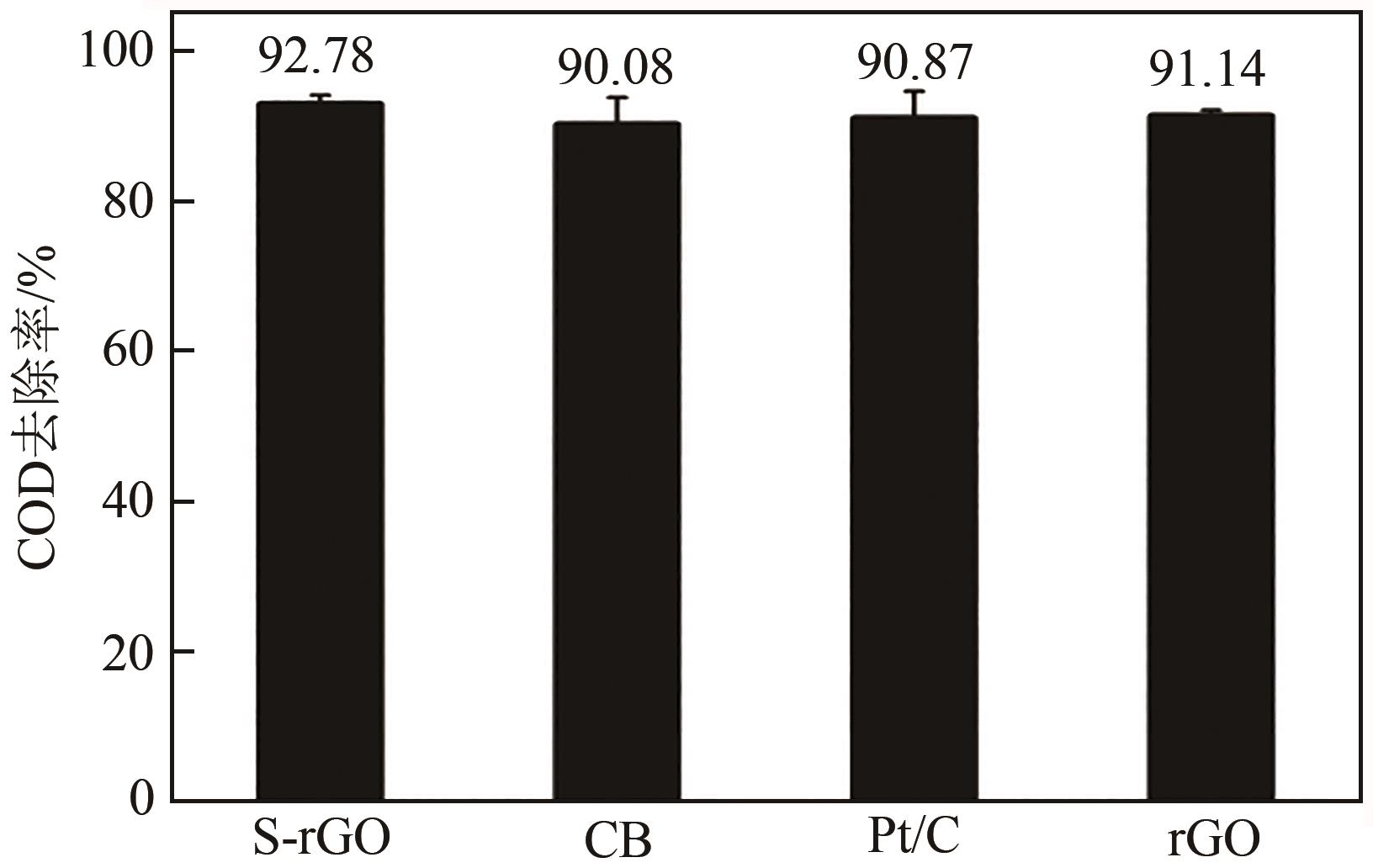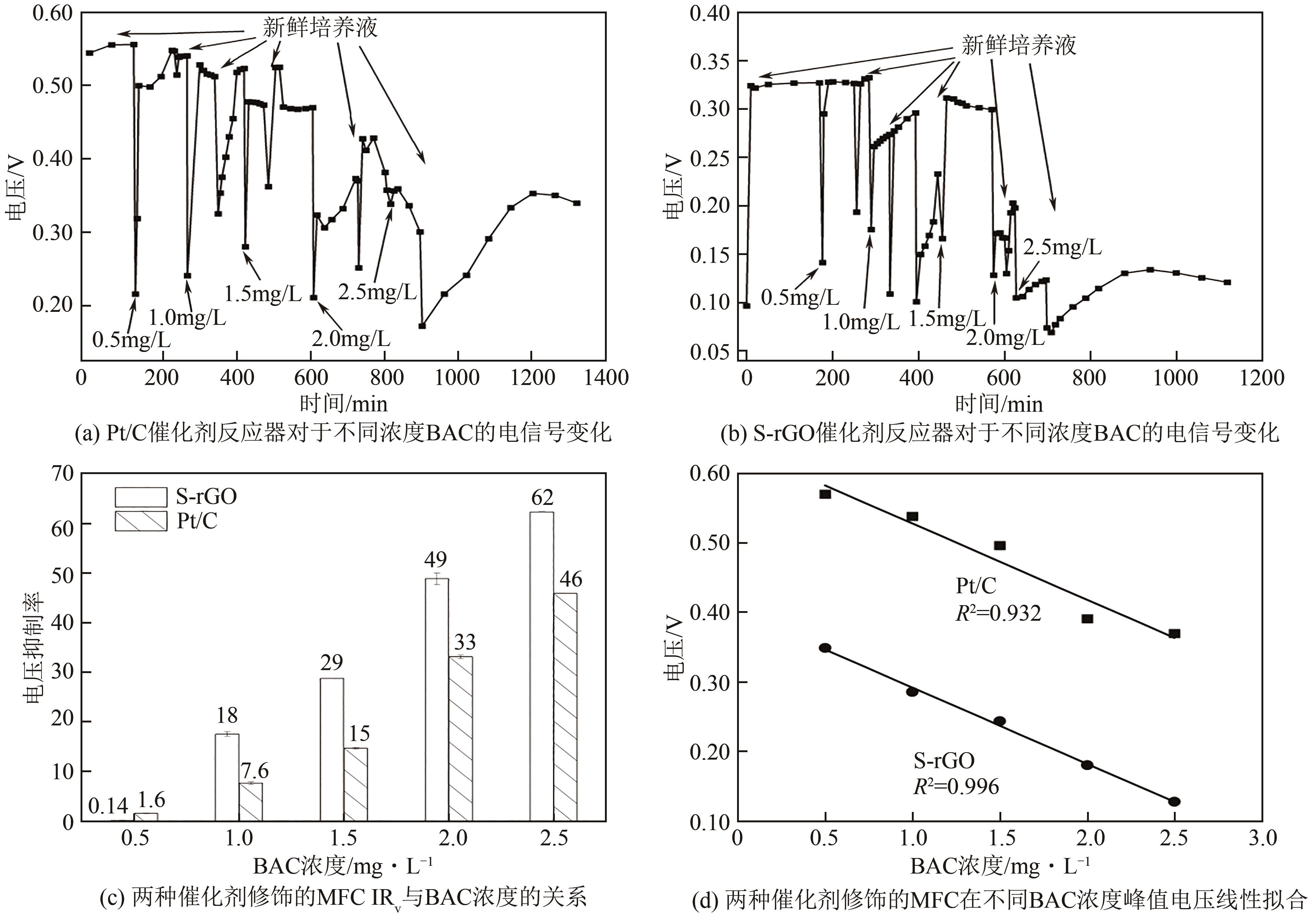| 1 |
LIU Hong, LOGAN Bruce E. Electricity generation using an air-cathode single chamber microbial fuel cell in the presence and absence of a proton exchange membrane[J]. Environmental Science & Technology, 2004, 38(14): 4040-4046.
|
| 2 |
CUI Yang, LAI Bin, TANG Xinhua. Microbial fuel cell-based biosensors[J]. Biosensors, 2019, 9(3): 92.
|
| 3 |
WANG Qiuying, ZHANG Xiaoyuan, Ruitao LYU, et al. Binder-free nitrogen-doped graphene catalyst air-cathodes for microbial fuel cells[J]. Journal of Materials Chemistry A, 2016, 4(32): 12387-12391.
|
| 4 |
YANG Wei, CHATA Gustavo, ZHANG Yudong, et al. Graphene oxide-supported zinc cobalt oxides as effective cathode catalysts for microbial fuel cell: High catalytic activity and inhibition of biofilm formation[J]. Nano Energy, 2019, 57: 811-819.
|
| 5 |
XIAO Li, DAMIEN Jacqueline, LUO Jiayan, et al. Crumpled graphene particles for microbial fuel cell electrodes[J]. Journal of Power Sources, 2012, 208: 187-192.
|
| 6 |
PAPIYA Farhan, PATTANAYAK Prasanta, BISWAS Abul Kalam, et al. Polyaniline and sulfonated graphene oxide supported bimetallic Manganese cobalt oxides as an effective and non-precious cathode catalyst in air-cathode microbial fuel cells[J]. Journal of Environmental Chemical Engineering, 2021, 9(5): 105992.
|
| 7 |
SABAA HANAA M, EL-KHATIB K M, El-Kady MOHAMED Y, et al. Spinel structure of activated carbon supported MFe2O4 composites as an economic and efficient electrocatalyst for oxygen reduction reaction in neutral media[J]. Journal of Solid State Electrochemistry, 2022, 26(12): 2749-2763.
|
| 8 |
XING Zhenyu, GAO Ningshengjie, QI Yitong, et al. Influence of enhanced carbon crystallinity of nanoporous graphite on the cathode performance of microbial fuel cells[J]. Carbon, 2017, 115: 271-278.
|
| 9 |
XU Meng, WU Ling, ZHU Meiwen, et al. Self-supporting nitrogen-doped reduced graphene oxide@carbon nanofiber hybrid membranes as high-performance integrated air cathodes in microbial fuel cells[J]. Carbon, 2022, 193: 242-257.
|
| 10 |
WANG Xin, GAO Ningshengjie, ZHOU Qixing, et al. Acidic and alkaline pretreatments of activated carbon and their effects on the performance of air-cathodes in microbial fuel cells[J]. Bioresource Technology, 2013, 144: 632-636.
|
| 11 |
WU Yining, WANG Ling, JIN Min, et al. Reduced graphene oxide and biofilms as cathode catalysts to enhance energy and metal recovery in microbial fuel cell[J]. Bioresource Technology, 2019, 283: 129-137.
|
| 12 |
SUN Dan, XIE Bin, LI Jiahao, et al. A low-cost microbial fuel cell based sensor for in situ monitoring of dissolved oxygen for over half a year[J]. Biosensors and Bioelectronics, 2023, 220: 114888.
|
| 13 |
DU Yue, MA Feixiang, XU Chengyan, et al. Nitrogen-doped carbon nanotubes/reduced graphene oxide nanosheet hybrids towards enhanced cathodic oxygen reduction and power generation of microbial fuel cells[J]. Nano Energy, 2019, 61: 533-539.
|
| 14 |
KLINGELE Matthias, PHAM Chuyen, VUYYURU Koteswara Rao, et al. Sulfur doped reduced graphene oxide as metal-free catalyst for the oxygen reduction reaction in anion and proton exchange fuel cells[J]. Electrochemistry Communications, 2017, 77: 71-75.
|
| 15 |
YOU Shujie, LUZAN Serhiy M, Tamás SZABÓ, et al. Effect of synthesis method on solvation and exfoliation of graphite oxide[J]. Carbon, 2013, 52: 171-180.
|
| 16 |
LU Yue, HU Xingxin, TANG Lin, et al. Effect of CuO/ZnO/FTO electrode properties on the performance of a photo-microbial fuel cell sensor for the detection of heavy metals[J]. Chemosphere, 2022, 302: 134779.
|
| 17 |
XING Fei, XI Hongbo, YU Yin, et al. A sensitive, wide-ranging comprehensive toxicity indicator based on microbial fuel cell[J]. Science of The Total Environment, 2020, 703: 134667.
|
| 18 |
TIAN Zhengshan, LI Jitao, ZHU Gangyi, et al. Facile synthesis of highly conductive sulfur-doped reduced graphene oxide sheets[J]. Physical Chemistry Chemical Physics, 2016, 18(2): 1125-1130.
|
| 19 |
ZHANG Qian, WANG Bing xin, YU Yong bo, et al. Sulfur doped-graphene for enhanced acetaminophen degradation via electro-catalytic activation: Efficiency and mechanism[J]. The Science of the Total Environment, 2020, 715: 136730.
|
| 20 |
CHEN Wenwen, LIU Zhongliang, LI Yanxia, et al. High electricity generation achieved by depositing rGO@MnO2 composite catalysts on three-dimensional stainless steel fiber felt for preparing the energy-efficient air cathode in microbial fuel cells[J]. Energy, 2021, 222: 119971.
|
| 21 |
BEGUM Halima, AHMED Mohammad Shamsuddin, JEON Seungwon. δ-MnO2 nanoflowers on sulfonated graphene sheets for stable oxygen reduction and hydrogen evolution reaction[J]. Electrochimica Acta, 2019, 296: 235-242.
|
| 22 |
Thuy-Duong NGUYEN-PHAN, PHAM Viet Hung, SHIN Eun Woo, et al. The role of graphene oxide content on the adsorption-enhanced photocatalysis of titanium dioxide/graphene oxide composites[J]. Chemical Engineering Journal, 2011, 170(1): 226-232.
|
| 23 |
GUO Yaoping, ZENG Zequan, ZHU Youcai, et al. Catalytic oxidation of aqueous organic contaminants by persulfate activated with sulfur-doped hierarchically porous carbon derived from thiophene[J]. Applied Catalysis B: Environmental, 2018, 220: 635-644.
|
| 24 |
Hwee Ling POH, Petr ŠIMEK, SOFER Zdeněk, et al. Sulfur-doped graphene via thermal exfoliation of graphite oxide in H2S, SO2, or CS2 gas[J]. ACS Nano, 2013, 7(6): 5262-5272.
|
| 25 |
WEI Dacheng, LIU Yunqi, WANG Yu, et al. Synthesis of N-doped graphene by chemical vapor deposition and its electrical properties[J]. Nano Letters, 2009, 9(5): 1752-1758.
|
| 26 |
Wojciech KICIŃSKI, SZALA Mateusz, BYSTRZEJEWSKI Michał. Sulfur-doped porous carbons: Synthesis and applications[J]. Carbon, 2014, 68: 1-32.
|
| 27 |
WEI Maoping, CHAI Hui, CAO Yali, et al. Sulfonated graphene oxide as an adsorbent for removal of Pb2+ and methylene blue[J]. Journal of Colloid and Interface Science, 2018, 524: 297-305.
|
| 28 |
KANNAN Aravindaraj G, ZHAO Jinxing, Sung Geun JO, et al. Nitrogen and sulfur co-doped graphene counter electrodes with synergistically enhanced performance for dye-sensitized solar cells[J]. Journal of Materials Chemistry A, 2014, 2(31): 12232-12239.
|
| 29 |
GUO Yaoping, ZENG Zequan, LI Yulin, et al. In-situ sulfur-doped carbon as a metal-free catalyst for persulfate activated oxidation of aqueous organics[J]. Catalysis Today, 2018, 307: 12-19.
|
| 30 |
ZHANG Zhibin, HUANG Jian, DONG Zhimin, et al. Ultralight sulfonated graphene aerogel for efficient adsorption of uranium from aqueous solutions[J]. Journal of Radioanalytical and Nuclear Chemistry, 2019, 321(3): 1045-1055.
|
| 31 |
XIONG Bin, ZHOU Yingke, Ryan O’HAYRE, et al. Facile single-step ammonia heat-treatment and quenching process for the synthesis of improved Pt/N-graphene catalysts[J]. Applied Surface Science, 2013, 266: 433-439.
|
| 32 |
BUCKEL F, EFFENBERGER F, YAN C, et al. Influence of aromatic groups incorporated in long-chain alkanethiol self-assembled monolayers on gold[J]. Advanced Materials, 2000, 12(12): 901-905.
|
| 33 |
SEVILLA Marta, FUERTES Antonio B. Highly porous S-doped carbons[J]. Microporous and Mesoporous Materials, 2012, 158: 318-323.
|
| 34 |
XIN Shuaishuai, SHEN Jianguo, LIU Guocheng, et al. Electricity generation and microbial community of single-chamber microbial fuel cells in response to Cu2O nanoparticles/reduced graphene oxide as cathode catalyst[J]. Chemical Engineering Journal, 2020, 380: 122446.
|
| 35 |
GU Yuxing, CHEN Zhigang, TANG Juanjuan, et al. Sulfur doped reduced graphene oxides with enhanced catalytic activity for oxygen reduction via molten salt redox-sulfidation[J]. Physical Chemistry Chemical Physics, 2016, 18(48): 32653-32657.
|
| 36 |
耿元昊, 林小秋, 孙亚昕, 等. 双金属导电金属有机框架材料Ni/Co-CAT的制备及其氧还原催化性能研究[J]. 化学学报, 2022, 80(6): 748-755.
|
|
GENG Yuanhao, LIN Xiaoqiu, SUN Yaxin, et al. Preparation of bimetallic conductive metal-organic framework material Ni/Co-CAT for electrocatalytic oxygen reduction[J]. Acta Chimica Sinica, 2022, 80(6): 748-755.
|
| 37 |
Bonyoung KOO, LEE Seung-Mok, Sang-Eun OH, et al. Addition of reduced graphene oxide to an activated-carbon cathode increases electrical power generation of a microbial fuel cell by enhancing cathodic performance[J]. Electrochimica Acta, 2019, 297: 613-622.
|
| 38 |
Minh Hang DO, Huu Hao NGO, GUO Wenshan, et al. Performance of a dual-chamber microbial fuel cell as a biosensor for in situ monitoring Bisphenol A in wastewater[J]. The Science of the Total Environment, 2022, 845: 157125.
|
| 39 |
ADEKUNLE Ademola, RAGHAVAN Vijaya, TARTAKOVSKY Boris. On-line monitoring of heavy metals-related toxicity with a microbial fuel cell biosensor[J]. Biosensors and Bioelectronics, 2019, 132: 382-390.
|
| 40 |
CARBAJO Jose B, PERDIGÓN-MELÓN Jose A, PETRE Alice L, et al. Personal care product preservatives: Risk assessment and mixture toxicities with an industrial wastewater[J]. Water Research, 2015, 72: 174-185.
|
| 41 |
KHAN Nishat, ANWER Abdul Hakeem, SULTANA Saima, et al. Effective toxicity assessment of synthetic dye in microbial fuel cell biosensor with spinel nanofiber anode[J]. Journal of Environmental Chemical Engineering, 2022, 10(2): 107313.
|
 ), 刘丽华3, 张倩1,2, 陈博彦4, 洪俊明1,2(
), 刘丽华3, 张倩1,2, 陈博彦4, 洪俊明1,2( )
)
 ), LIU Lihua3, ZHANG Qian1,2, CHEN Boyan4, HONG Junming1,2(
), LIU Lihua3, ZHANG Qian1,2, CHEN Boyan4, HONG Junming1,2( )
)
